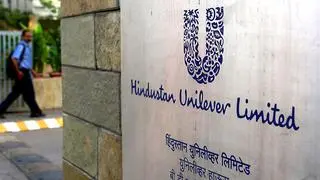Hotel chains are among the worst hit by the pandemic. As the lockdown lifts, the biggest challenge facing hospitality companies is how to get paranoid customers to walk in through their doors.
From Marriott’s ‘We Care’ to ITC’s ‘WeAssure’ to Vista Room’s ‘Stay Assured’, hospitality companies are coming up with new campaigns to convince guests that their properties are safe zones and Covid-19 protocol-compliant. Standard operating procedures (SOPs) have undergone radical changes, especially when it comes to guest check-in and back-of-the-house operations.
Marriott, for which 37 of 123 hotels in the country are temporarily closed during the lockdown, has initiated Project We Care at its hotels. To start with, it is being piloted at two of its properties — JW Marriott Aerocity New Delhi and The Ritz-Carlton Pune.
Minimising contact
“The programme is focussed on identifying key areas where the guest comes in contact with other people and minimise that contact,” said Neeraj Govil, Senior Vice-President, South Asia, Marriott International. “Every hotel has identified over 200 touchpoints where we feel we can make significant changes to meet the new health and safety challenges presented by the current environment.”
The touchpoints include elevator buttons, handrails, linen in rooms, restaurants and even the pens in front desk, which after each use will be sanitised. “The other thing we are doing is to enhance the training and self hygiene protocols of employees, and make sure they are using the right personal protective equipment,” he added.
Interactive animated videos on touchpoints are being developed that guests can view by scanning QR codes.
Anticipating that for some time now guests checking in will prefer in-room dining as it is safer, Marriott is working on contactless delivery of food to rooms, leaving trolleys outside. Restaurants will have reduced seating capacities as the space between tables is increased. Only a la carte menu will be served, with no buffets.
New check-in protocols
For Amatra Hotels and Resorts, which has a property each in Haridwar and Mussoorie, the new SOP includes a host of social distancing measures. For instance, only alternate rooms will be allocated. It might even leave two rooms vacant between allocated rooms, depending on occupancy.
“At every access point, thermal testing stands compulsory,” said Gaurav Taneja, General Manager, Amatra. “Guest luggage will be disinfected before being brought into the premises. The hotel will provide cars that are sanitised as well.”
Meanwhile, ITC hotels has put out a statement that it is redefining cleanliness with its WeAssure initiative. It is partnering with certification body DNV GL Business Assurance to ensure stringent clinical levels of hygiene and safety.
“WeAssure is a unique programme designed in collaboration with medical professionals and disinfection experts to further enhance the existing hygiene and cleaning protocols,” said Nakul Anand, Executive Director, ITC.
Boutique holiday home rental network Vista Rooms has implemented a mandatory 24-hour window between consecutive bookings as part of its Stay Assured initiative. The move is meant to give service staff adequate time to sanitise properties, said the company. It anticipates that more travellers may choose to book private homes at secluded, serene locations rather than hotels.
Wooing travellers
Hotels are also going for discounts and other offers to woo customers reluctant to travel post pandemic.
Vista Rooms, for instance, is pushing ‘book now, pay later’ offers to tempt guests to travel.
Amatra, too, has limited offer deals of ₹10,000 for two days with all meals thrown in, or a 30 per cent discount on rooms, to get guests to book early for the period when hotels reopen.
Drive-in domestic guests
Almost all the hotel chains anticipate that the first set of demand will probably be at resort destinations that are at drivable distances from big cities. So Mumbaikars could go to Alibaug, Matheran or even Goa by car, Delhites to Jaipur, Mussoorie or Haridwar, Chennaites to Pondicherry and so on.
“ Our thought is that in the initial period, locations that are drivable distances where guests can come in their own vehicles will gain as most people will want to avoid taking flights,” said Marriott’s Govil.
Lemon Tree Hotels, in fact, has been posting messages on social media, talking about its properties in Goa, Rishikesh and Corbett that are road trip destinations.
Hotels are also trying to push demand by urging people to stay at hotels within their own cities as a change of scene after being cooped up at home. As Govil pointed out, “We think people might like to do staycations, too.”







Comments
Comments have to be in English, and in full sentences. They cannot be abusive or personal. Please abide by our community guidelines for posting your comments.
We have migrated to a new commenting platform. If you are already a registered user of TheHindu Businessline and logged in, you may continue to engage with our articles. If you do not have an account please register and login to post comments. Users can access their older comments by logging into their accounts on Vuukle.